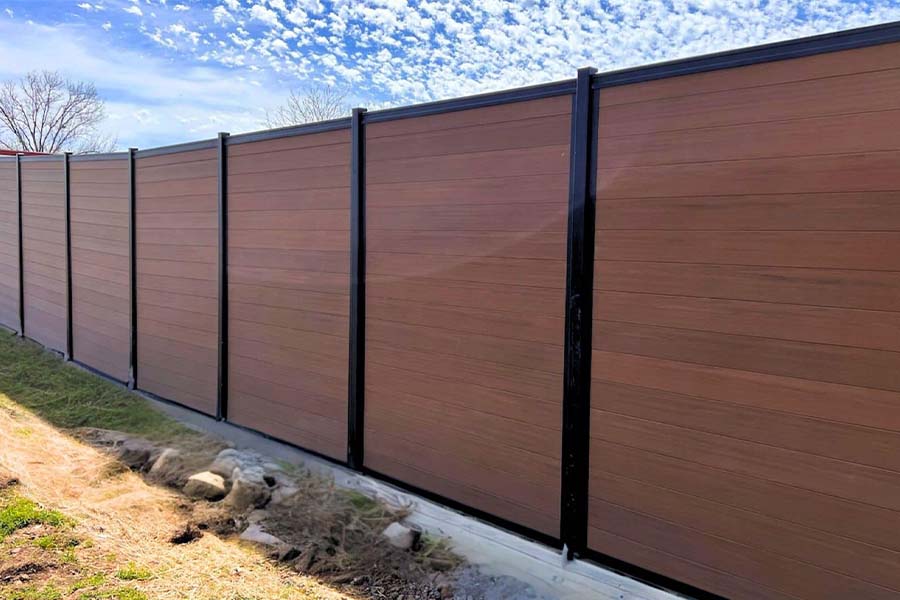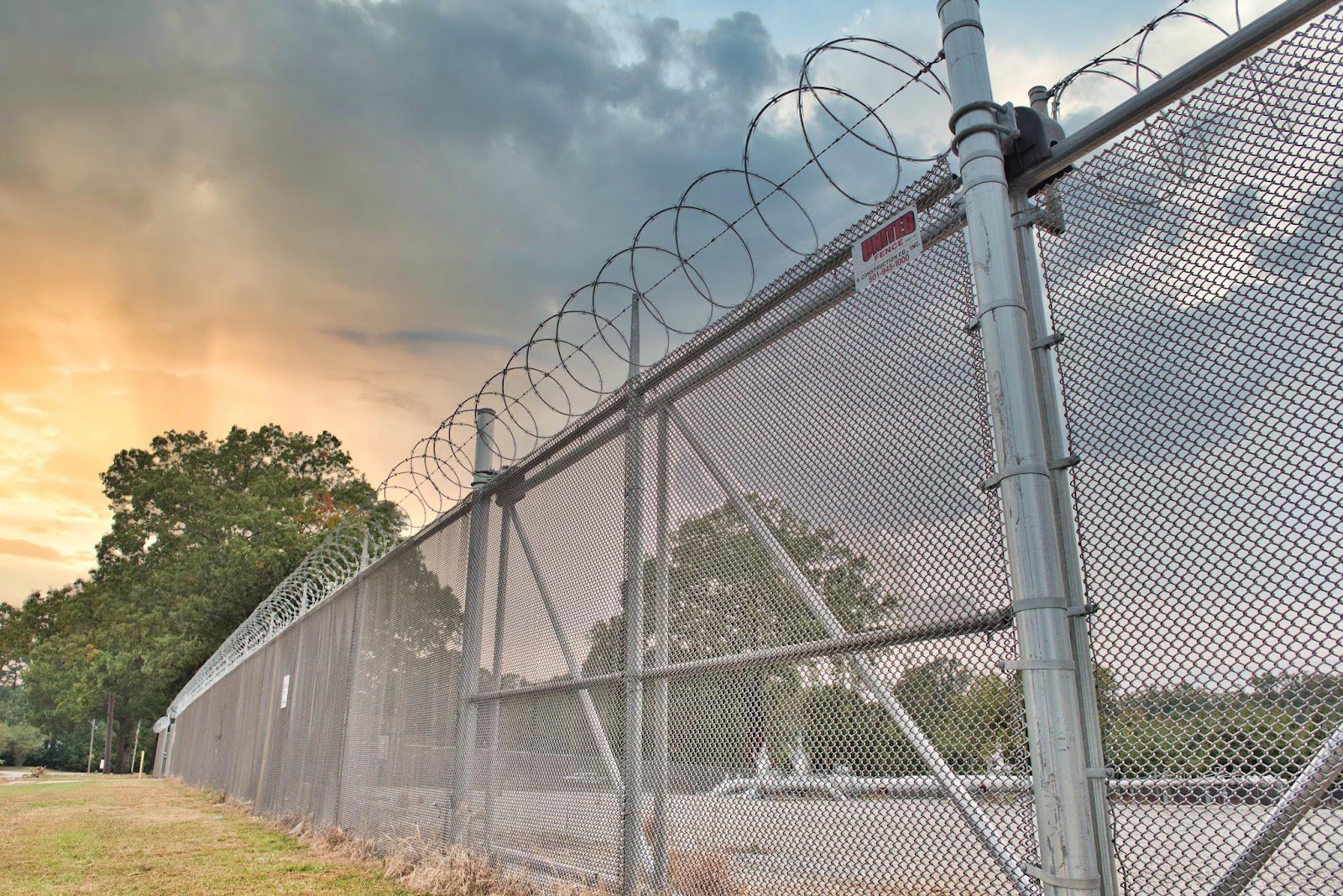All Categories
Featured
Choosing the best fence product for your residential property is not simply concerning aesthetics; it has to do with personal privacy, safety and security, and longevity. Whether you're looking to improve the elegance of your home or service, protect your home, or produce an exclusive oasis, the product you pick will play a substantial function in attaining your objectives. With so several secure fencing alternatives available, it's essential to recognize the advantages and downsides of each prior to making your choice.
Advantages:
All-natural Visual: Timber has a warm, all-natural allure that boosts the look of any type of home. Adjustable: Wood fences can be repainted, discolored, or left untreated to achieve different designs. Personal privacy: A tall wood fence can supply a high degree of privacy for your home. Downsides:
Upkeep Required: Wood fences call for normal upkeep, consisting of discoloration and securing to avoid damages from climate and pests. Susceptible to Weather: Timber can warp, rot, or come to be ravaged with termites otherwise effectively maintained. Shorter Life Expectancy: Contrasted to materials like vinyl or steel, timber commonly has a much shorter lifespan. Best For: Homeowners searching for a traditional, adjustable, and all-natural look.
![]()
Advantages:
Low Maintenance: Plastic does not call for paint, discoloration, or sealing. It's easy to clean with a simple tube down. Resilient: Immune to rot, termites, and climate, plastic fences last longer than wood fencings. Variety of Styles: Readily available in several styles, colors, and textures to suit any type of residential or commercial property. Disadvantages:
Greater Initial Expense: The in advance expense of vinyl fencing is generally more than wood or chain web link. Prone to Fracturing: In extreme cold or with hefty effect, plastic fencings can crack or damage. Much less Personalized: Unlike timber, vinyl supplies fewer options for paint or staining. Best For: Homeowners or businesses searching for a low-maintenance, resilient, and sturdy fencing choice.
Advantages:
Stamina and Resilience: Steel fencings are solid, resistant to put on, and lasting. Reduced Maintenance: As soon as installed, steel fences need little upkeep, especially aluminum, which resists deterioration. High Safety: Steel fencings are hard to climb up and provide an effective obstacle versus trespassers. Downsides:
Price: Steel fences, especially functioned iron and steel, can be much more costly than various other alternatives. Corrosion and Rust: Steel fences, particularly, might rust without correct treatment. Light weight aluminum is corrosion-resistant, but functioned iron calls for normal maintenance. Restricted Personal privacy: Metal fencings do not provide much privacy unless they are integrated with other materials, like wood slats or vinyl inserts. Best For: Those that prioritize safety and security and longevity over privacy, or those with an upscale residential property seeking an elegant, classic fencing.
Benefits:
Cost-efficient: Chain link is one of one of the most budget friendly secure fencing choices offered. Low Upkeep: As soon as set up, wire mesh fence call for little maintenance past occasional cleaning. Sturdy: Chain web link is solid and can last for years if appropriately maintained. Negative Aspects:
![]()
Limited Looks: Wire mesh fence do not offer the visual appeal of wood or wrought iron, and can look practical. Privacy Concerns: Unless personal privacy slats or plastic finishings are included, wire mesh fence do not offer much privacy. Much less Safe in Some Locations: While chain web link provides protection, it can be conveniently scaled or reduced if not set up with added security functions. Best For: Industrial buildings, big properties, or areas where security is more important than aesthetic appeals.
Advantages:
Reduced Maintenance: Composite fences require no staining, securing, or painting. Sturdiness: Immune to parasites, rot, and climate damage, composite fencings last longer than wood. Eco-Friendly: Many composite fencings are made from recycled products, making them a sustainable option. Disadvantages:
Greater Price: Compound fences can be a lot more pricey than standard timber or plastic alternatives. Limited Customization: While offered in numerous shades and styles, composite fencings do not offer the same personalization alternatives as wood fencings. Heavy: Composite fencing products can be much heavier than other choices, making installation much more labor-intensive. Best For: Eco-conscious home owners or services searching for a low-maintenance, durable, and lasting fence product.
Conclusion. Choosing the ideal fence product for your building eventually relies on your concerns-- whether it's safety, personal privacy, looks, or reduced maintenance. From timeless wood and affordable chain web link to long lasting vinyl and strong metal, each material uses one-of-a-kind benefits matched to different needs. By taking into consideration variables like spending plan, installment time, upkeep needs, and long-term sturdiness, you can choose the perfect fencing that satisfies your property's specific demands.
- Timber Fence. Wood is among one of the most popular fence products due to its flexibility, ageless allure, and all-natural appearance. It's best for homes and can be made use of in a variety of styles, including privacy fencings, picket fencings, and post-and-rail fences.
Advantages:
All-natural Visual: Timber has a warm, all-natural allure that boosts the look of any type of home. Adjustable: Wood fences can be repainted, discolored, or left untreated to achieve different designs. Personal privacy: A tall wood fence can supply a high degree of privacy for your home. Downsides:
Upkeep Required: Wood fences call for normal upkeep, consisting of discoloration and securing to avoid damages from climate and pests. Susceptible to Weather: Timber can warp, rot, or come to be ravaged with termites otherwise effectively maintained. Shorter Life Expectancy: Contrasted to materials like vinyl or steel, timber commonly has a much shorter lifespan. Best For: Homeowners searching for a traditional, adjustable, and all-natural look.
- Plastic (PVC) Fencing. Vinyl fencings are a significantly prominent option due to their low maintenance and sturdiness. Made from synthetic materials, vinyl fences are immune to rot, decay, and bugs. Offered in a variety of designs and colors, vinyl fencing can be developed to simulate the appearance of timber without the connected maintenance.

Advantages:
Low Maintenance: Plastic does not call for paint, discoloration, or sealing. It's easy to clean with a simple tube down. Resilient: Immune to rot, termites, and climate, plastic fences last longer than wood fencings. Variety of Styles: Readily available in several styles, colors, and textures to suit any type of residential or commercial property. Disadvantages:
Greater Initial Expense: The in advance expense of vinyl fencing is generally more than wood or chain web link. Prone to Fracturing: In extreme cold or with hefty effect, plastic fencings can crack or damage. Much less Personalized: Unlike timber, vinyl supplies fewer options for paint or staining. Best For: Homeowners or businesses searching for a low-maintenance, resilient, and sturdy fencing choice.
- Metal Fence (Aluminum, Steel, and Wrought Iron) Steel fencings are understood for their strength, safety and security, and visual value. Aluminum, steel, and functioned iron fences are frequently made use of in property, business, and industrial setups, offering high levels of protection and an advanced appearance.
Advantages:
Stamina and Resilience: Steel fencings are solid, resistant to put on, and lasting. Reduced Maintenance: As soon as installed, steel fences need little upkeep, especially aluminum, which resists deterioration. High Safety: Steel fencings are hard to climb up and provide an effective obstacle versus trespassers. Downsides:
Price: Steel fences, especially functioned iron and steel, can be much more costly than various other alternatives. Corrosion and Rust: Steel fences, particularly, might rust without correct treatment. Light weight aluminum is corrosion-resistant, but functioned iron calls for normal maintenance. Restricted Personal privacy: Metal fencings do not provide much privacy unless they are integrated with other materials, like wood slats or vinyl inserts. Best For: Those that prioritize safety and security and longevity over privacy, or those with an upscale residential property seeking an elegant, classic fencing.
- Chain Web Link Fence. Wire mesh fence are one of the most cost effective and sensible alternatives readily available. Frequently used in commercial setups, they can likewise be a great option for properties, especially if protection is a leading concern. Chain link fencings are offered in various heights and can be customized with privacy slats for added safety and security.
Benefits:
Cost-efficient: Chain link is one of one of the most budget friendly secure fencing choices offered. Low Upkeep: As soon as set up, wire mesh fence call for little maintenance past occasional cleaning. Sturdy: Chain web link is solid and can last for years if appropriately maintained. Negative Aspects:

Limited Looks: Wire mesh fence do not offer the visual appeal of wood or wrought iron, and can look practical. Privacy Concerns: Unless personal privacy slats or plastic finishings are included, wire mesh fence do not offer much privacy. Much less Safe in Some Locations: While chain web link provides protection, it can be conveniently scaled or reduced if not set up with added security functions. Best For: Industrial buildings, big properties, or areas where security is more important than aesthetic appeals.
- Compound Secure fencing. Composite fences integrate wood fibers and plastic to develop a durable, green option to conventional wood fencing. These fences have the appearance of timber yet require much less upkeep and are resistant to rot, pests, and fading.
Advantages:
Reduced Maintenance: Composite fences require no staining, securing, or painting. Sturdiness: Immune to parasites, rot, and climate damage, composite fencings last longer than wood. Eco-Friendly: Many composite fencings are made from recycled products, making them a sustainable option. Disadvantages:
Greater Price: Compound fences can be a lot more pricey than standard timber or plastic alternatives. Limited Customization: While offered in numerous shades and styles, composite fencings do not offer the same personalization alternatives as wood fencings. Heavy: Composite fencing products can be much heavier than other choices, making installation much more labor-intensive. Best For: Eco-conscious home owners or services searching for a low-maintenance, durable, and lasting fence product.
Conclusion. Choosing the ideal fence product for your building eventually relies on your concerns-- whether it's safety, personal privacy, looks, or reduced maintenance. From timeless wood and affordable chain web link to long lasting vinyl and strong metal, each material uses one-of-a-kind benefits matched to different needs. By taking into consideration variables like spending plan, installment time, upkeep needs, and long-term sturdiness, you can choose the perfect fencing that satisfies your property's specific demands.
Latest Posts
Specialist Residential Roof Covering Solutions You Can Trust Fund
Published May 23, 25
1 min read
Expert Residential Roof Covering Solutions You Can Count On
Published May 23, 25
1 min read
Explore Reduce Expenses on Car Maintenance with Montclare Auto Repair’s Special Deals
Published May 23, 25
1 min read
More
Latest Posts
Specialist Residential Roof Covering Solutions You Can Trust Fund
Published May 23, 25
1 min read
Expert Residential Roof Covering Solutions You Can Count On
Published May 23, 25
1 min read
Explore Reduce Expenses on Car Maintenance with Montclare Auto Repair’s Special Deals
Published May 23, 25
1 min read